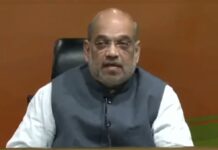In 2017, at least in foreign policies, India was able to defy precedents and confound expectations. As a result, India is venturing into many areas it dared never before — whether this is visionary or reckless, only time will tell. The Doklam crisis was certainly a defining moment in many ways. Apart from the military lessons, this time India chose to object to a creeping action by China that has gone unremarked by previous governments for many years. Doklam issue has resulted in placing India and China squarely on the opposite sides, no matter how the two countries are trying to dress it up. The maturing of the two rising Asian powers was shown by the stand-off and its resolution, but it also showed once again the precarious nature of India’s defense preparation. It could be said that India was lucky as the crisis happened in an area where India is at an advantage.
The Kulbhushan Jadhav case was taken to the ICJ and it surprised even Indians because to not take bilateral issues to the international level is an article of faith in India’s foreign policy template. Indian governments since independence have made “internationalization” a bad word. The final arguments and verdict in the coming weeks will certainly draw attention due to the early success of staying Jadhav’s execution. But the ghost has been slain.
In the past year, India’s multilateral appetite has grown. The campaign to put Dalveer Bhandari back as ICJ judge once again defied conventional practice by previous Indian governments that India did not go up against a P-5 member. It will not be an exaggeration to say MEA and PMO pumped flesh and burned phone lines in a way that is normally seen in Indian domestic elections. It was indeed a tough work — even Japan, India’s closest buddy voted against Bhandari in the elections!
It is an irony that India’s victory might make it much more difficult for it to get into the NSG — Indian determination to move along its trajectory to becoming a “leading power” appears to have convinced the Chinese system to double down on its opposition to India. According to sources, Chinese calculation appears to be this — if India gets into the NSG, its path to a permanent seat in the UNSC would become easier because it would have overcome the “NPT hurdle”. India’s determination will be, therefore, contested by China with its own.
So, the big question remains out on whether it’s a good thing — or not — for India to have an open global appetite. Some strongly believe that India should “bide its time”, but proponents of this foreign policy in the government say, India should take what is available and wait for the next level to open up.




